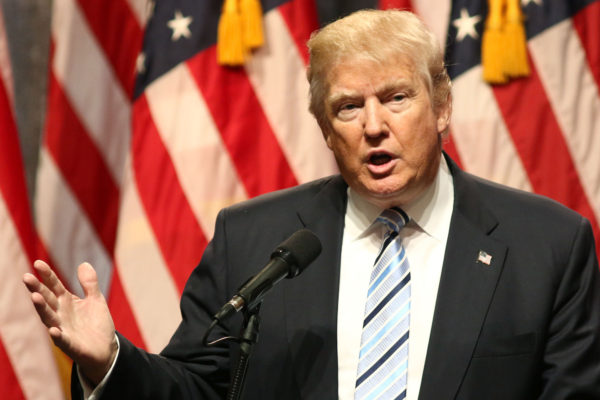WashU Expert: Trump’s transgender military ban is ‘unfounded’
A ban on transgender people serving in the United States military is an attempt to make policy with no logical foundation in evidence or expertise on the matter, said an expert on transgender aging at Washington University in St. Louis.
A probiotic stress fix
An engineer at Washington University in St. Louis is working to create a probiotic that would help protect the host from the negative health effects of adrenaline surges. The new probiotic could easily be mixed into yogurt or taken in pill form.
In military personnel, no difference between blast- and nonblast-related concussions
Explosive devices are the most common cause of traumatic brain injuries in veterans returning from Iraq and Afghanistan. A new study shows that military personnel with brain trauma related to such blasts had outcomes similar to those with brain injury from other causes, according to researchers at the School of Medicine.
Military service changes personality, makes vets less agreeable
It’s no secret that battlefield trauma can leave veterans with deep emotional scars that impact their ability to function in civilian life. But new research from Washington University in St. Louis suggests that military service, even without combat, has a subtle lingering effect on a man’s personality, making it potentially more difficult for veterans to get along with friends, family and co-workers.
Blast-related injuries detected in the brains of U.S. military personnel
An advanced imaging technique has revealed that some U.S. military personnel with mild blast-related traumatic brain injuries have abnormalities in the brain that have not been seen with other types of imaging. The abnormalities were found in the brain’s white matter, the wiring system that nerve cells in the brain use to communicate with each other.
Computer scientist aims for a better-networked military
Image courtesy U.S. ArmyWUSTL’s Patrick Crowley is proposing a novel network for the U.S. Department of Defense (DoD) to manage information better simultaneously in real-time.Patrick Crowley, a WUSTL computer architect, intends to design a new kind of network for the Department of Defense (DoD) to facilitate real-time information in the field so that every foot soldier, commander, tank and transport vehicle is networked. Crowley will use the WUSTL programmable network platform that can scale real-time information sharing over several orders of magnitude, from a handful of interconnected platforms to thousands and tens of thousands. He hopes to facilitate better information sharing in the military.
Military use of robots increases
WUSTL computer scientists who work on robots say the machines still need the human touch.War casualties are typically kept behind tightly closed doors, but one company keeps the mangled pieces of its first casualty on display. This is no ordinary soldier, though — it is Packbot from iRobot Corporation. Robots in the military are no longer the stuff of science fiction, and WUSTL’s Doug Few and Bill Smart are on the cutting edge of this new wave of technology. Few and Smart report that the military goal is to have approximately 30% of the Army comprised of robotic forces by approximately 2020.
Anti-epileptic drugs may help prevent and treat noise-induced hearing loss
On the battlefield, a soldier’s hearing can be permanently damaged in an instant by the boom of an explosion, and thousands of soldiers returning from Iraq have some permanent hearing loss. But what if soldiers could take a pill before going on duty that would prevent damage to hearing? Research at the School of Medicine suggests a medicinal form of hearing protection may someday be a possibility.
Anti-epileptic drugs may help prevent and treat noise-induced hearing loss
On the battlefield, a soldier’s hearing can be permanently damaged in an instant by the boom of an explosion, and thousands of soldiers returning from Iraq have some permanent hearing loss. But what if soldiers could take a pill before going on duty that would prevent damage to hearing? Research at Washington University School of Medicine in St. Louis suggests a medicinal form of hearing protection may someday be a possibility. More…
American businesses play critical and costly role in global war on terrorism
WeidenbaumThe economic power of American businesses is playing a key role in the war on terrorism: helping cut off the flow of money to terrorist groups, producing anti-terrorist equipment, screening employees and visitors entering company facilities, manufacturing the medicines to respond to biological and chemical attacks, and making the weapons used by our armed forces in the fight. Nevertheless, such responses often raise the cost of production and act like a new tax on private enterprise, suggests Washington University in St. Louis economist Murray Weidenbaum.


